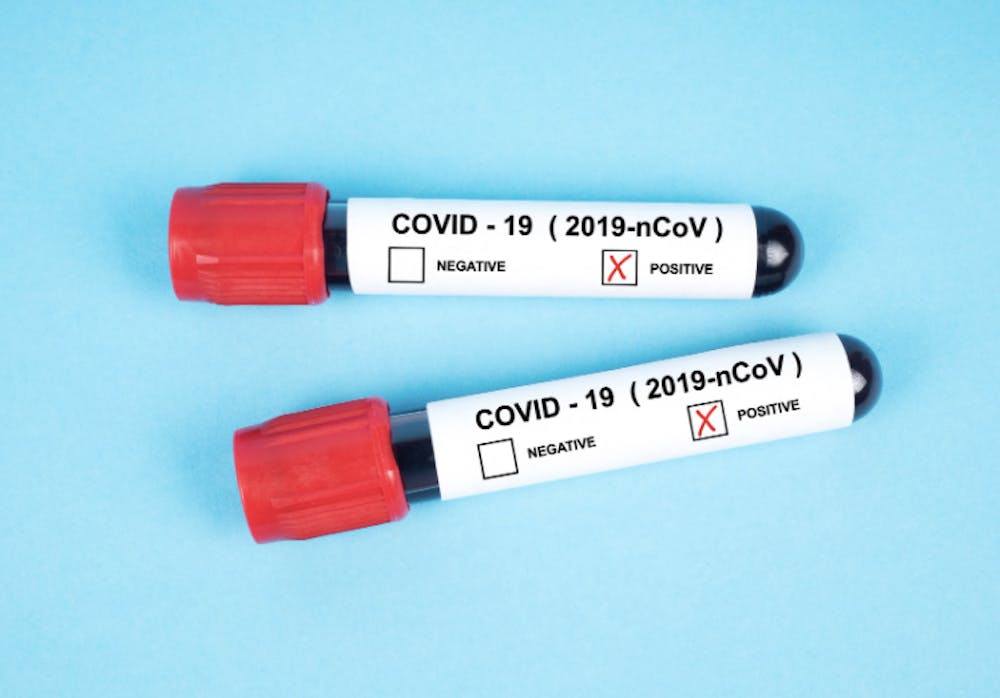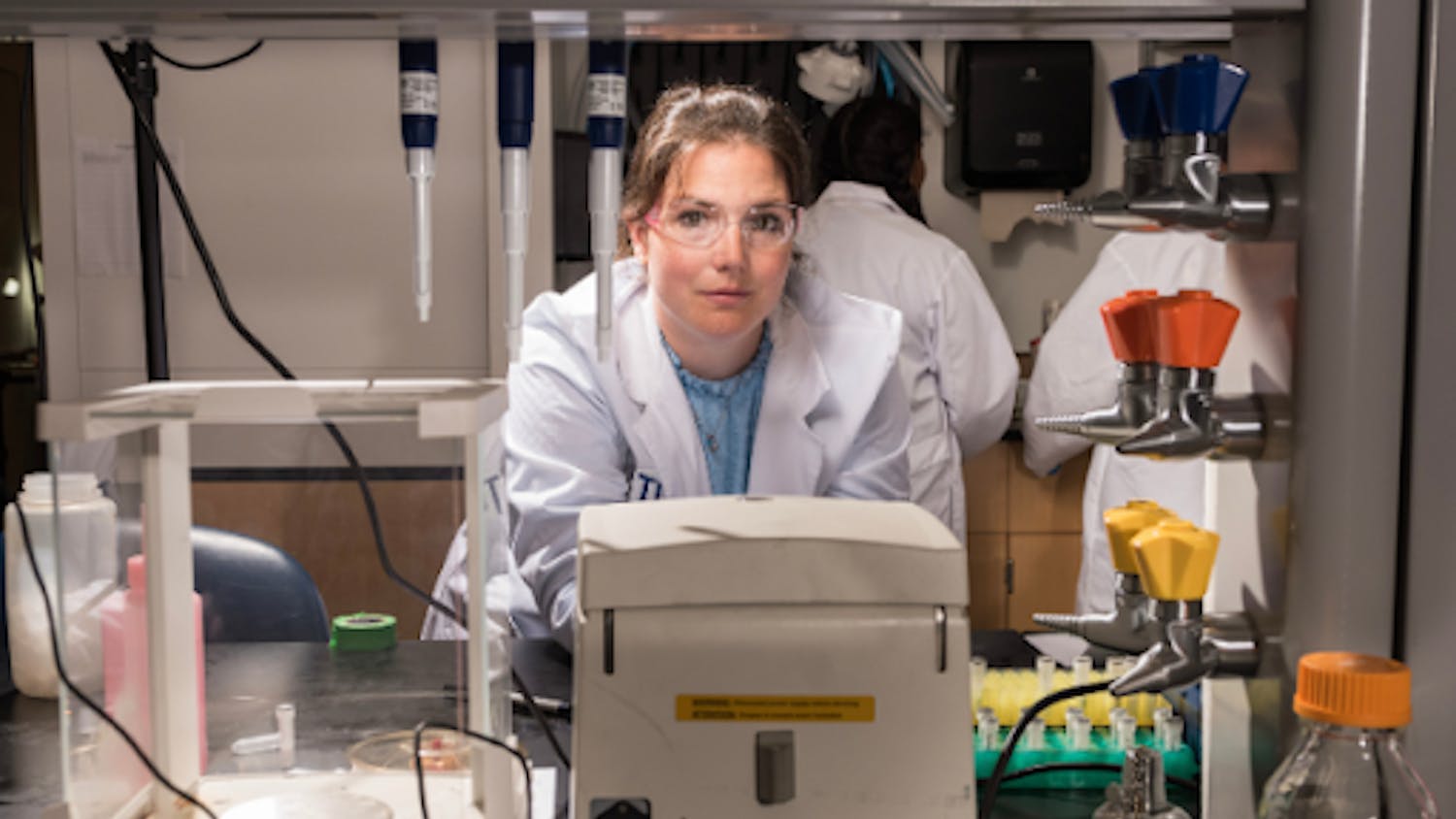By Jenny Marcinkowski
Staff Writer
A few days into the spring semester, a student was sent into isolation after testing positive for Covid-19. Five days later on Feb. 8, he and roughly ten other students he identified as close contacts were able to return to their dorms after finding out his test was a false positive.
After testing negative upon entering the College, following all Covid-19 protocols and having felt no symptoms, James Dolan, a freshman biomedical engineering student, was surprised to receive a call on Feb. 3 from the College’s Covid-19 Outreach Team. He was asked to identify those whom he was in close contact with within the two days prior and to start packing his things for Townhouses West isolation.
A close contact is defined as someone who was within six feet of an infected person for 15 minutes or more starting from two days before illness onset. For asymptomatic patients, it is two days before test collection. Students who test positive get placed into isolation while students who were exposed to the virus enter into quarantine in New Residence Hall.
“Once identified, they are noted in our Contact Tracing master list for the semester and assigned a student contact tracer from our TCNJ COVID Outreach Team,” said Rafia Siddiq, the College’s contact tracing coordinator and strategic health and wellness specialist.
Siddiq added that the close contact is then called and questioned using a script that helps the College figure out their isolation dates. The College is currently staffed with 20 contact tracers.

“Before [relocating to Townhouses West] I got a call from Bergen New Bridge asking me to come in for a PCR test, which I was happy about since I didn’t want to isolate for all 10 days if I didn’t have to. I went and got my PCR test and was told it would be three to four days before I found out the test result,” Dolan said.
He added that his test result ended up taking five days.
Dolan ultimately was able to go home as his family was away for about a week and was grateful he made that decision instead of going to the townhouses: an option open to students, but not encouraged to protect households from infection.
“There is nothing stopping anyone from going home; however, it is not recommended by the CDC or the College for any students to go home while they may be a close contact or positive case for risk of exposing family members,” Siddiq said.
One of his close contacts, Emma Duffy, a freshmen english secondary education major, told The Signal that her experience was a little more hectic. After being told by Dolan that he had listed her as a close contact, Duffy waited to receive a phone call from the Covid Outreach Team.
She received one call where she was questioned and told she would be immediately moved into quarantine. Three hours later at 9 p.m., she received another call telling her she would be moving into New Residence Hall.
“Everyone was very confused and we had so many questions but we just had to wait and do nothing except to start packing our belongings and prepare to isolate for two weeks,” said Duffy.
It was not until 10:30 p.m. that they were finally able to start moving their belongings into New Residence Hall, since they needed to wait for their student ID cards to allow them access into the building.
Duffy explained that during those five days in quarantine, she and the rest of Dolan’s close contacts began to suspect that it might have been a false positive since none of them, including Dolan, had symptoms and they all had received a negative test that morning before moving into isolation.
Duffy noted that they had all been following Roscoe’s Pledge and had not been congregating or going to many places on campus besides the library, the dining hall and outside for an occasional jog.
Finally, on Feb. 8, Dolan received his PCR test results which came back negative. That day, he and his close contacts moved back into the Towers. As of Feb. 17, there are 140 close contacts in quarantine.
“By no means do I mean to bash anyone, any company or school,” Duffy said. “Everything is so new to us and even though it was an unpleasant situation, overall, there were still people helping us along the way. It’s not anyone’s fault really. We’re all going through the pandemic together and things need to be changed, but that’s how we fix things by experiencing and figuring out these problems.”
The Covid-19 Outreach Team has also faced its own challenges with getting in contact with cases and having students share their close contacts, which Siddiq mentioned is a health and safety concern as it can continue the spread of the virus. She noted that the contact tracers have done a great job calling, texting and emailing students, ensuring that the individuals understand they have been contacted.
“We are hoping to have students comply with contact tracers to provide close contact information and understand that when contact tracers ask this question it is not for anyone to get into trouble but to help slow down the spread of the virus by providing quarantine dates for close contacts and isolation dates for those that tested positive,” Siddiq said. “This will ensure to keep our TCNJ and surrounding community safe.”
Bergen New Bridge Medical Center clarified to The Signal that their laboratory is accredited under the College of American Pathologists and that their testing is performed under rigorous requirements. Donnalee Corrieri, Chief Communications and Marketing Officer at Bergen New Bridge Medical Center, noted that the staff at the College who are performing the tests are experienced and have gone through extensive training and emphasizes that tests and test types are never perfect.
“The incidence of false-negative and false-positive results for both Covid-19 antigen and PCR tests does occur regardless of the manufacturer. In general, the incidence of false-positives from Covid-19 tests is extremely low,” Corrieri said. “We are confident in the testing strategy the university has chosen and the test types we offer. The TCNJ public should be assured by our laboratory staff’s testing experience and be advised that adherence to our high-quality testing standards is a high priority for both TCNJ and Bergen New Bridge Medical Center.”







